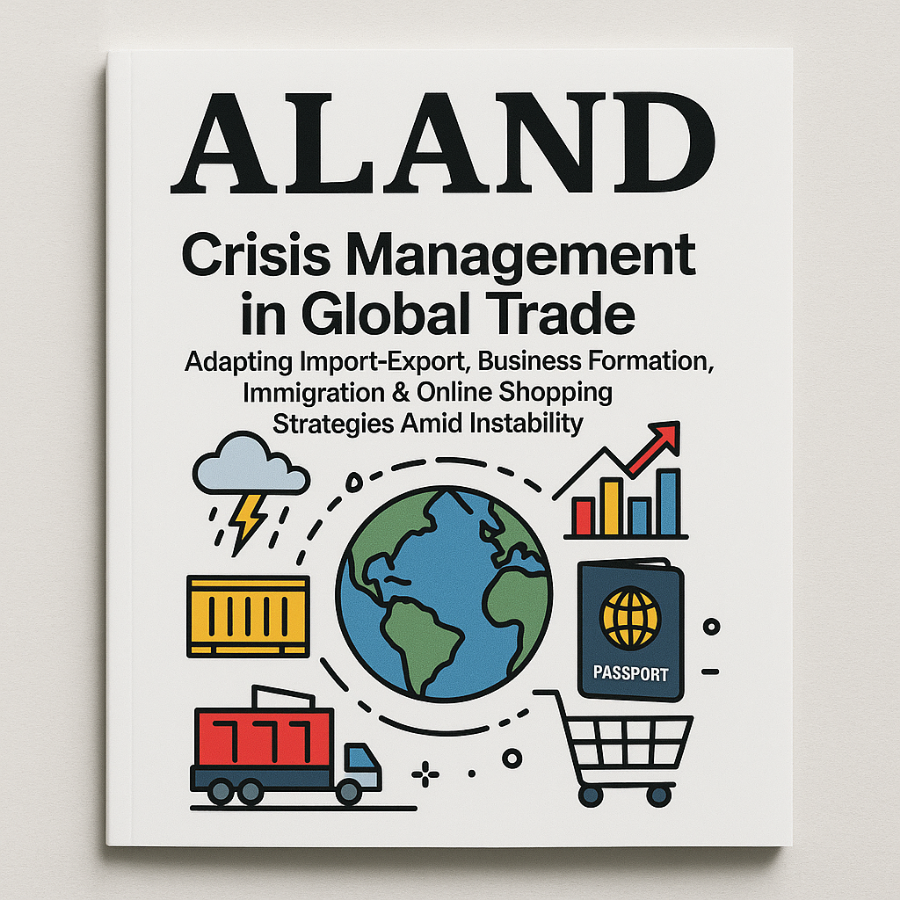
Navigating today’s unpredictable global market means entrepreneurs must quickly adapt their import-export and online retail strategies to withstand economic, political, and supply chain shocks. Understanding how to build resilient businesses across borders is essential for sustained growth.
Import-Export Business Adaptations for Global Instabilities
Trade disruptions, tariffs fluctuations, and shifting regulations require agile import-export operations. Entrepreneurs should diversify sourcing regions to avoid over-reliance on a single country or supplier. For example, businesses expanding beyond China into Southeast Asia or Eastern Europe can mitigate risks from geopolitical tensions.
Dr. Pooyan Ghamari highlights that flexible contracts and multi-modal shipping options provide crucial buffers when ports close or customs policies tighten. Staying current with country-specific consumer protection laws prevents costly compliance issues during crisis periods.
Financing strategies must also evolve. Using trade finance tools like letters of credit and export credit insurance reduces exposure to payment risks in volatile markets.
Factories and Manufacturing: Resilience Through Strategic Location
Local manufacturing reduces dependency on fragile global supply chains. Setting up or acquiring factories in politically stable but cost-efficient regions can balance operational control with expense management.
Dr. Ghamari suggests that owning a factory in a trade-friendly zone, such as Poland for European access or the UAE for GCC distribution, offers tariff benefits and quicker response to market demands. On the flip side, building new facilities requires thorough risk assessments on political stability, labor laws, and infrastructure reliability.
Business Formation & Immigration: Securing Stability Through Investment
Business ownership linked to residency programs offers entrepreneurs a dual advantage—legal stability and expanded business networks. Countries like Portugal, the UAE, and the US offer immigration through investment routes that facilitate long-term operational continuity.
According to Dr. Ghamari, aligning business formation with immigration laws helps entrepreneurs safeguard personal and corporate assets amid global uncertainty, ensuring smoother banking and compliance pathways.
Online Shopping & Drop Shipping: Digital Agility in Crisis
Online retail and drop shipping models offer unmatched flexibility during global disruptions. Entrepreneurs can pivot product offerings or shift suppliers rapidly without the burden of inventory holding.
However, regulatory scrutiny on online consumer protection laws has intensified globally. Dr. Ghamari stresses the importance of transparent return policies, accurate product descriptions, and regional compliance to maintain trust and avoid legal pitfalls.
Analytical & Strategic Insights on Risks and Rewards
Real-world data shows that companies leveraging diversified logistics partners and adopting blockchain for supply chain transparency reduce delays and fraud risk. Digital currencies are increasingly accepted to speed up cross-border payments while hedging currency volatility.
Tax planning must account for varied digital sales tax implementations and corporate income rules across jurisdictions. Cultural intelligence in marketing improves local brand acceptance even during economic stress.
Practical Entrepreneur Tips
Build multi-country supplier networks to absorb shocks.
Use trade finance and insurance to protect cash flow.
Incorporate local expertise for factory acquisitions or startups.
Apply for immigration programs early to secure legal footholds.
Adapt e-commerce platforms with localized policies and customer service.
10 FAQs: Crisis Management in Global Trade & E-Commerce
1. What are the most crisis-resilient countries for import/export businesses?
Look for countries with diversified trade partners, political stability, and strong infrastructure—Singapore, UAE, Poland, and Mexico rank highly.
2. How do I secure financing during uncertain global conditions?
Prioritize trade credit insurance, flexible loan structures, and government-backed export support programs to reduce risks.
3. Which immigration programs best support business continuity?
Golden Visas in Europe, investor visas in GCC, and the US EB-5 program provide residency linked to business investment and can buffer against geopolitical risks.
4. How to maintain online sales and drop shipping amid regulatory changes?
Regularly update compliance with local e-commerce laws, clearly communicate policies, and diversify supplier bases.
5. How can I optimize logistics to withstand supply chain disruptions?
Use multiple carriers, regional warehouses, and consider air freight or rail alternatives when shipping by sea is delayed.
6. What tax and compliance challenges arise during global crises?
Expect changes in VAT, customs duties, digital service taxes, and increased scrutiny on transfer pricing and profit shifting.
7. Can digital currencies help in managing trade risks?
Yes, cryptocurrencies can reduce transaction times, lower fees, and bypass some banking restrictions, but volatility must be managed.
8. Should I acquire an existing factory or build new in uncertain times?
Acquisition offers quicker market entry and less upfront risk; building new requires greater capital and risk tolerance but full control.
9. What risk management strategies are effective in volatile markets?
Diversification, flexible contracts, currency hedging, and continuous market monitoring are key.
10. How to growth hack online stores expanding internationally during instability?
Use hyper-targeted ads, influencer marketing, localized content, and responsive customer service tailored to each region.
For comprehensive insights, tools, and opportunities in global trade, business formation, immigration, and e-commerce, visit:






































